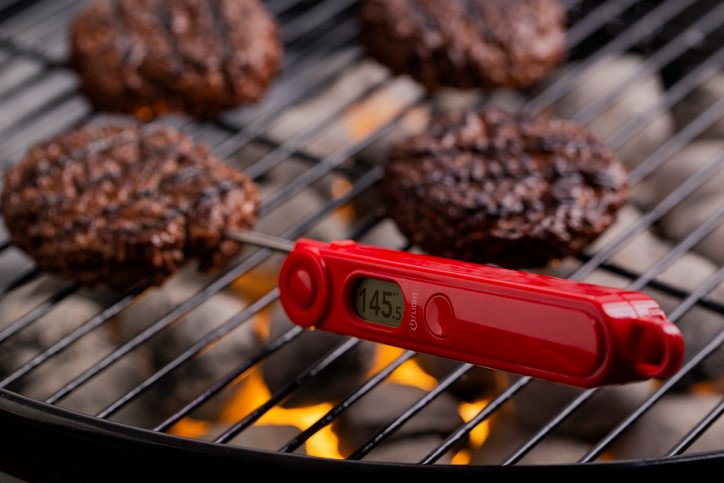Submitted by Thurston County Public Health and Social Services
Thurston County has a vast culinary landscape, offering a plethora of dining options to residents and visitors alike. Behind the scenes of these bustling kitchens is a critical process that plays a vital role in safeguarding the public’s health. The Public Health and Social Services Food and Environmental Services Section (FESS) team conducts routine kitchen inspections for restaurants and all other retail food service establishments in Thurston County. One of the primary objectives of restaurant inspections is to prevent and control the outbreak of foodborne illnesses. The Centers for Disease Control and Prevention (CDC) estimates that each year, roughly 1 in 6 Americans suffer from foodborne illnesses, leading to thousands of hospitalizations and deaths. Thurston County’s robust inspection system acts as a shield against such risks, identifying and rectifying potential sources of contamination before they can pose a threat to public health.

Restaurant Inspections – Enforcing the Thurston County Sanitary Code
The Food and Environmental Services Section (FESS) performs risk-based restaurant inspections that focus on assessing the hygiene practices within food establishments. The FESS team conducts their food service establishment inspections based on the application of the HACCP principles. The acronym ‘HACCP’ stands for ‘Hazard Analysis and Critical Control Points’, consisting of seven basic principles including hazard analysis, critical control points (CCP) identification, establishing critical limits, monitoring procedures, corrective actions, verification procedures, and record-keeping and documentation. When conducting risk-based food establishment inspections our FESS team focuses on the following top five risk factors:
- Food from Unsafe Sources
- Inadequate Cooking
- Improper Holding Temperatures
- Contaminated Equipment
- Poor Personal Hygiene
This includes the proper storage and handling of food, adequate refrigeration, and the cleanliness of kitchen equipment. Additionally, inspectors observe the facility’s active managerial control over these risk factors during their daily operations. This is done through a variety of methods, like ensuring a manager is a certified food protection manager, enforcing employee health policies for restrictions and exclusions, and proper training and retraining of staff. By enforcing stringent sanitary codes, managers and inspectors alike contribute to maintaining a safe and healthy environment for food preparation, reducing the likelihood of cross-contamination and the spread of foodborne illnesses.
Per the Washington State Department of Health, food service operators in Washington are required to follow many precautionary steps to serve food safely.
- In Washington, food workers are trained to prevent bare-hand contact with ready-to-eat foods. Food workers must use gloves, tongs, or other barriers so that they do not touch ready-to-eat foods such as toast, sandwiches, and salad.
- Certain foods must be kept at proper temperatures for safety. Foods such as meats, sliced melons, cooked vegetables, cooked rice, and cooked noodles must be kept either hot or cold. If your food is not as hot or cold as it should be, send it back.
- Food workers must wash hands twice after using the restroom – once in the restroom and then immediately upon returning to the kitchen.
- Read more about safe food handling in the Washington State Food and Beverage Workers’ Manual.
Restaurant inspections serve as educational tools, offering owners insights into areas that may need improvement. By working collaboratively with our FESS inspectors, food establishment owners can enhance their understanding of best practices, enabling them to proactively address potential issues and maintain a high standard of food safety.
Transparent communication is key to fostering trust between the community and local food establishments. Publishing inspection results and scores provide consumers with valuable information about the cleanliness and safety practices of their favorite restaurants, see Thurston County Food Safety Inspection Lookup Scores here. This transparency encourages restaurants to uphold high standards, fostering a culture of accountability within the culinary community.

Tips for Dining Out
Here are some actions you can take to protect yourself from foodborne illness when you dine out. The main reasons someone could get sick after eating out include foods being held at improper temperatures, inadequate cooking, contaminated equipment, food from unsafe sources, and poor personal hygiene. Routine inspections help to ensure that food establishments are safe places to eat and help prevent foodborne illness.
Individuals can review current Thurston County food safety inspection scores at Food Safety Inspection Lookup | Thurston County (thurstoncountywa.gov) to see how restaurants in the area performed on their most recent inspections. It is somewhat impractical to view the inspection report of every restaurant you plan to eat at, so make sure to follow these tips below to protect yourself and loved ones from foodborne illnesses while dining out.
- Wash Your Hands – your own hands can carry harmful germs, make sure to wash before you eat.
- Read Menu and Signs –restaurants are required to notify consumers if certain animal foods are served raw or undercooked. If you choose to eat food raw or undercooked, you may be at increased risk of foodborne illness.
- Order Wisely and Speak Up – if your food is undercooked, speak up and send it back.
- Report Concerns – call our Food and Environmental Services Section staff at 360-867-2667 to report concerns about food safety at a food establishment.
Another way to protect yourself from foodborne illness, contaminants, and allergens is to be aware of food recalls and safety alerts. Check out Washington State Food Recalls for a list of current recalls and safety alerts, and to sign up to receive notifications.
In Thurston County, the importance of food establishment inspections goes beyond mere bureaucratic procedures; it is a commitment to the health and safety of Thurston County residents. By diligently enforcing sanitary codes and safety standards, our FESS team plays a crucial role in preventing foodborne illnesses, maintaining clean and safe environments, and fostering a community where residents can trust the places where they dine. As Thurston County continues to evolve, the continued dedication to robust restaurant inspections ensures that the culinary landscape remains a source of delight and not a potential threat to public health.
Sponsored
















































